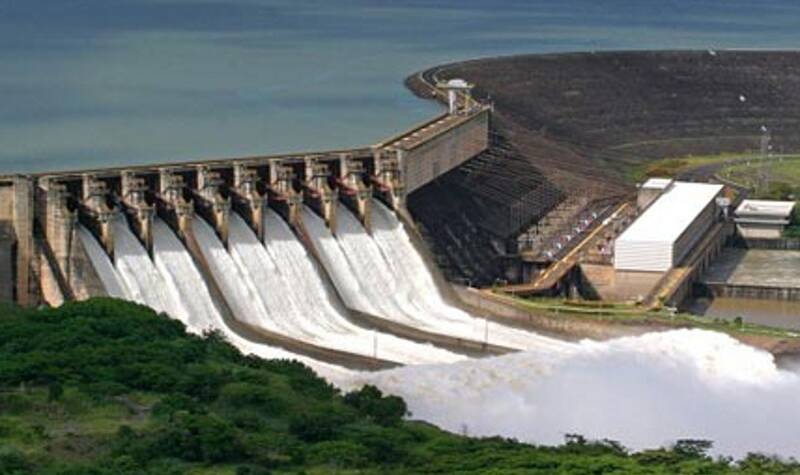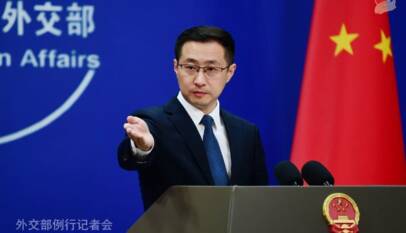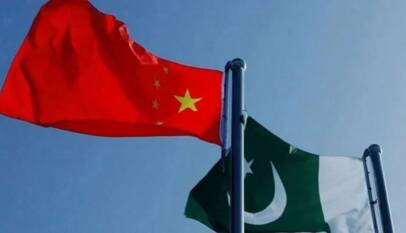Work on Suki Kinari Hydropower project nears completion
The CPEC Suki Kinari Hydro Power Project worth USD 2 billion is expected to become operational by December 2022, as around 60% work has so far been completed. This is the largest independent hydro power producer in Pakistan, and will generate 3,081 GWh million units per year. It is considered one of the most cost-effective hydropower schemes in the region due to its high design head of 900 meters and relatively short intake structure crest. The total operational life of the project is 100 years and the company will hand over the Suki Kinari hydropower project to the Government of Pakistan after 30 years. The project is expected to increase power generation capacity by more than five percent.
BEIJING, May 8 (APP – UrduPoint / Pakistan Point News – 8th May, 2021 ) :The Suki Kinari Hydro Power Project woth US $ two billion being completed at a cost of US $ two billion under China-Pakistan Economic Corridor (CPEC) framework is expected to become operational by December 2022.
Around 60 percent work of the 884 MW hydro power project in Khyber-Pakhtunkhwa province has been completed. It has also achieved the second-stage river closure, entering a new phase of its dam construction, according to a report published by CEN.
Suki Kinari Hydropower Project is the largest independent hydro power producer in Pakistan, expected to generate 3,081 GWh million units per year.
The project is expected to increase power generation capacity by more than five percent. The Khyber Pakhtunkhwa government will earn approximately Pakistani 1.5 billion rupees per year water use in the form of royalty. The province will receive additional 113MW electricity in its share after completion.
Suki Kinari is a run-of-the-river largest private sector hydropower project located on Kunhar River in the Kaghan Valley of District Mansehra, Khyber Pakhtunkhwa. The project poses minimal environmental and social impact because it is a run-of-the-river project.
It is considered one of the most cost-effective hydropower schemes in the region due to its high design head of 900 meters and relatively short intake structure crest.
The Kunhar river originates and traverses through the whole length in Pakistani territory which ensures 100 percent uninterrupted flow through the project life. The project will generate maximum power for up to four hours daily.
This project is being supported and closely monitored by the governments of Pakistan and China due to its importance. Chinese company ‘China Gezgouba Group Corporation’ initiated the work on Suki Kinari Hydropower Project in 2017.
The project is being built on a “Build-Own-Operate and Transfer” basis in accordance with the Government of Pakistan‘s Policy for Power Generation Projects 2002.
The total operational life of the project is 100 years and the company will hand over the Suki Kinari hydropower project to the Government of Pakistan after 30 years.
During this period, the company will be responsible for its maintenance and other expenditures.
The potential for energy generation from Kunhar River was first identified around 1960. In 1959, Charles T Main US consultants were engaged by the Water and Power Development Authority (WAPDA) to study this potential.
In January 1960, they issued a report entitled “Kunhar River Project-Kaghan Valley”.� Further studies were conducted in 1984 and 1995 to optimize the power potential of Kunhar River.
These studies identified a series of potential sites along with the river from where the energy could be produced by cascading the water-energy through run-of-the-river hydro projects.
Studies suggested potential sites for these projects at Batakundi, Naran, Suki Kinari, Balakot and Patrind. Run-of-the-river project envisages that the water is drawn from the river, taken to the turbines in a powerhouse, located downstream through a tunnel and after running the turbines and producing energy, the water is again diverted back to the river.
This water is now again available to be used to produce energy through yet another similar setup downstream. This is called cascading. Unfortunately, no worthwhile efforts were made in the past on these hydro projects for producing electricity at affordable rates.
The project has provided around 5,000 local jobs and it will beautify the landscape, thus attracting more tourists to come and generate greater revenue.
CPEC’s Success Story: $25 Billion Invested Across 38 Completed Projects
ISLAMABAD: A total of 38 projects worth over $25 billion have been completed and 23 develo…












